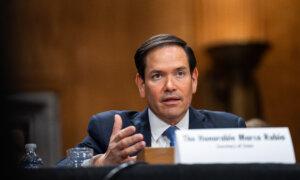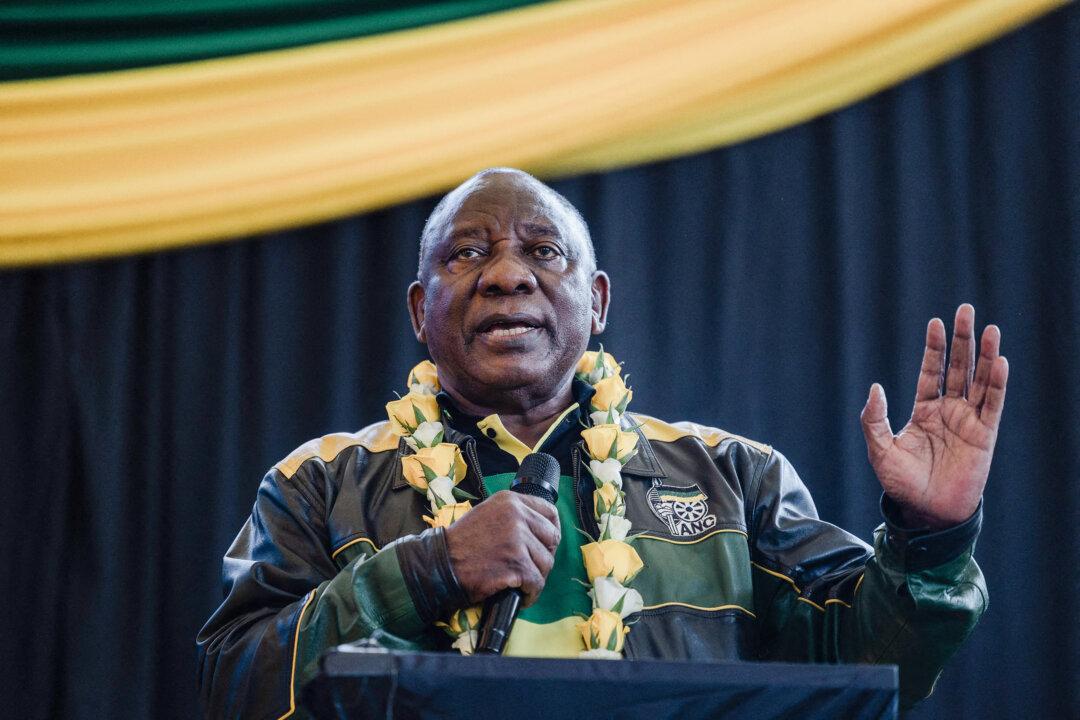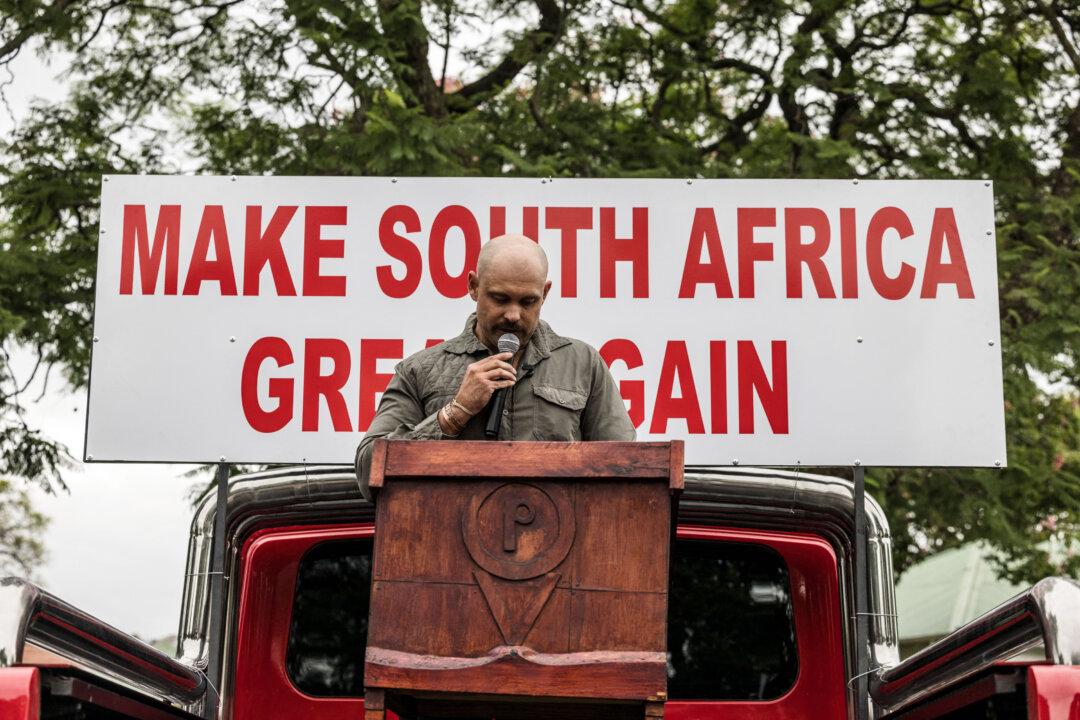JOHANNESBURG—Billions of dollars stolen by former Libyan leader Moammar Gadhafi are hidden in clandestine bank accounts and secret vaults in the United States and two southern African countries, intelligence operatives and financial investigators say.
Separately, intelligence agents and a former top government official in Pretoria, South Africa, told The Epoch Times that about $20 billion stolen by Gadhafi is spread across banks in South Africa.
These sources noted that $30 million in cash flown by Gadhafi to South Africa in the months before his execution by rebels is now hidden in Eswatini—the small kingdom, formerly called Swaziland, neighboring South Africa and the continent’s last absolute monarchy.
The man leading the hunt for Libya’s missing public funds, Asset and Management Recovery Office Director-General Mohammed al-Mensli, confirmed that hundreds of billions of dollars were stolen during Gadhafi’s brutal military rule.
Gadhafi came to power in a coup in 1969 and began ruling Libya through fear and plundering his country’s vast natural resources.
As chairman of the Revolutionary Command Council and “Brotherly Leader” of the Great Socialist People’s Libyan Arab Jamahiriya, Gadhafi imprisoned, tortured, and murdered political opponents and forged close links to global terrorist organizations.
Files lodged at the International Criminal Court detail the starvation of entire populations and the bombardment of towns and villages that were home to perceived political opponents.

In 2003, Gadhafi’s regime accepted responsibility for the Pan Am Flight 103 bombing over Lockerbie, Scotland, in 1988, which killed 259 people, including 190 Americans.
He paid nearly $3 billion in compensation to the families of the victims.
Yet Gadhafi continued to be revered among left-wing nationalists in Africa as an anti-Western, anti-colonialist, and anti-Israel revolutionary.
Tripoli tried to evade the sanctions by illicitly channeling oil profits to secret locations across the world, al-Mensli told The Epoch Times.
He said information that he uncovered during his investigation will be used by the Libyan government in Tripoli under Prime Minister Abdel Hamid Dubaiba “to lodge legal claims in the U.S. to retrieve stolen public funds in interest-bearing accounts.”
Al-Mensli said that recovery of the funds would be “vital to rebuilding” the country, which devolved into another civil war in 2014, ending with an October 2020 U.N.-led cease-fire agreement.

News Causing Stir in South Africa
News of al-Mensli’s investigation has triggered interest in South Africa, where Gadhafi secretly financed the African National Congress (ANC), the party that came to power under Nelson Mandela in 1994 following decades of apartheid white minority rule.Zuma, a Chinese Communist Party and Soviet-trained former chief of intelligence for the ANC’s armed wing, Umkhonto we Sizwe (Spear of the Nation), denies all charges and allegations.
In the months leading up to Gadhafi’s ouster and murder, Zuma and the Libyan ruler met several times.
Initially, according to Zuma’s former top adviser and ANC Treasurer Mathews Phosa, the visits for the then-president of Africa’s largest economy were to convince Gadhafi to surrender power voluntarily to “facilitate a peaceful democratic transition” in Libya.
But shortly after a meeting with Gadhafi in April 2011, six months before his death at the hands of rebel forces, Zuma “inexplicably” changed tack, Phosa said.
“He suddenly began insisting that Col. Gadhafi must remain in power,” Phosa told The Epoch Times.
“Beginning in 2009, when Gadhafi began to get paranoid about being deposed, I accompanied President Zuma to a number of meetings in a luxury tent near Tripoli,” Phosa said. “The Colonel promised to donate a lot of money to the ANC, and for Libya to sign military contracts with Mr. Zuma’s associates.”
The meetings were held under the guise of Gadhafi’s chairmanship of the African Union, which lasted from 2009 to 2010, according to the ANC stalwart.
After civil war broke out in Libya in February 2011, Phosa and Zuma also met with rebel leaders to try to broker peace.
“Those leaders told me they would no longer cooperate in any way with Zuma because he had betrayed them by aligning with Gadhafi,” Phosa said.
Two serving and one former South African intelligence agents, speaking anonymously, told The Epoch Times that Zuma also met with Gadhafi a few months before the dictator’s Oct. 20, 2011, death.
“President Zuma offered to fly Colonel Gadhafi to safety in South Africa because the rebel troops were approaching fast,” one of the operatives said. “Colonel Gadhafi refused and said, ‘No; I will die in my own country. If I am captured or killed, please give this money to my loved ones.’”
In the months that followed, “many flights” carrying “crates of dollars, gold, and diamonds” flew to several locations in South Africa, including a military base near Pretoria, another agent said.
“From there, the loot was transported to Mr. Zuma’s compound and hidden in a place that was under the ground,” the agent said. “Later, when things began to get hot for Mr. Zuma, I hear the cash, etc., was moved to Swaziland under the care of the King [Mswati].”
Spokespeople for both Zuma and Mswati denied knowledge of the Libyan cash and valuables.
South African investigative journalist Jovial Rantao has previously presented information similar to that provided by the intelligence operatives.
According to the documents, about $30 million dollars in cash, hundreds of tons of gold, and about 6 million carats of diamonds were transported from Tripoli to South Africa in more than 60 flights.
“What could be the world’s largest cash pile is stored in palettes at seven heavily guarded warehouses and bunkers in secret locations between Johannesburg and Pretoria,” Rantao wrote, noting that Gadhafi’s treasure was guarded by former apartheid-era Special Forces members.
He said another 260 billion rands (now worth almost $14.5 billion) was deposited in four commercial banks in South Africa.
In April 2019, South Africa’s Sunday Times reported that Mswati had confirmed to South African President Cyril Ramaphosa that Zuma had transported $30 million dollars to his country.
The president’s spokesperson would not comment on Ramaphosa’s meetings with Mswati.







